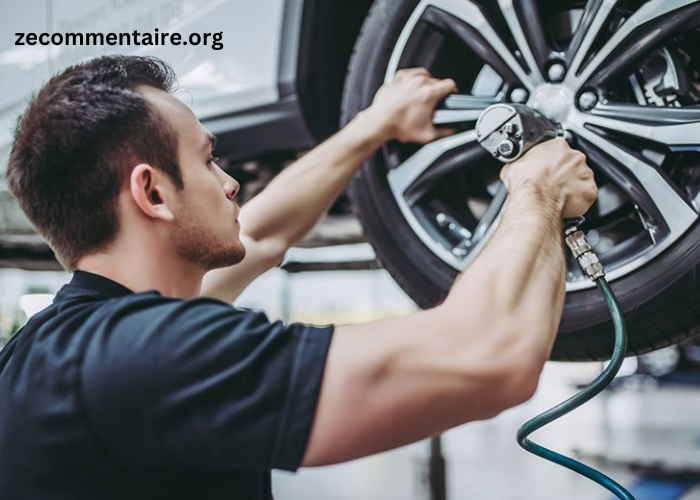Car troubles can be a source of significant stress for drivers, particularly when it comes to major repairs. Understanding common car issues can empower you as a vehicle owner, helping you make informed decisions about repairs, budgeting, and maintenance. This blog post explores some of the most frequent major car repairs, the signs that indicate trouble, and how to approach these issues to keep your vehicle running smoothly.
1. Engine Overhaul
The engine is often considered the heart of the vehicle. An engine overhaul is one of the most significant repairs you can face, involving a complete disassembly and reassembly of the engine components. Signs that your engine may need an overhaul include:
- Overheating: If your engine frequently overheats, it could indicate a cooling system failure, which can lead to severe engine damage.
- Loss of Power: A significant drop in engine performance, such as sluggish acceleration or difficulty maintaining speed, can signal underlying issues.
- Excessive Oil Consumption: If you find yourself needing to add oil more frequently, it may indicate worn piston rings or valve seals.
If you notice any of these symptoms, it’s crucial to consult a trusted mechanic for a thorough diagnosis. While an engine overhaul can be expensive, it can also extend the life of your vehicle significantly.
2. Transmission Replacement
The transmission is responsible for transferring power from the engine to the wheels, and any issues with it can severely affect your car’s performance. Symptoms of transmission problems include:
- Slipping Gears: If your vehicle unexpectedly changes gears or fails to stay in gear, this can indicate a serious transmission issue.
- Fluid Leaks: Transmission fluid is typically red or pink and has a distinct smell. If you notice spots on your driveway or garage floor, it could be a sign of a leak.
- Unusual Noises: Grinding, whining, or clunking sounds when shifting can be red flags.
Transmission repairs can range from a simple fluid change to a complete replacement, depending on the severity of the issue. Prompt action can prevent further damage and more costly repairs.
3. Brake System Repairs
The brake system is vital for your safety on the road. Common brake system repairs include replacing brake pads, rotors, and calipers. Signs that your brakes may need attention include:
- Squeaking or Grinding Sounds: If you hear unusual noises when braking, it’s likely time for new brake pads.
- Soft or Spongy Brake Pedal: A brake pedal that feels soft or sinks to the floor can indicate air in the brake lines or a brake fluid leak.
- Vibrations: If you feel vibrations in the steering wheel or brake pedal when stopping, it could mean warped rotors.
Neglecting brake issues can lead to dangerous situations, so regular inspections and prompt repairs are essential.
4. Suspension Repairs
The suspension system affects how your vehicle handles and rides. Common issues include worn shocks or struts, which can lead to a bumpy ride and poor handling. Signs that your suspension may need repairs include:
- Excessive Bouncing: If your car bounces excessively after hitting bumps, it may indicate worn shocks or struts.
- Uneven Tire Wear: Uneven wear patterns on your tires can suggest alignment or suspension issues.
- Pulling to One Side: If your vehicle pulls to one side while driving, it may indicate a problem with the suspension or alignment.
Having your suspension inspected regularly can improve your vehicle’s handling and extend tire life.
5. Cooling System Repairs
The cooling system regulates engine temperature and prevents overheating. Major repairs in this system often involve replacing the radiator, water pump, or thermostat. Signs of cooling system issues include:
- Overheating Engine: Frequent overheating can lead to serious engine damage.
- Coolant Leaks: If you notice green or orange fluid under your car, it may be coolant leaking from a damaged hose or radiator.
- Steam from the Engine: If you see steam coming from under the hood, it indicates a coolant leak or a serious overheating problem.
Regular maintenance, such as flushing the cooling system and checking for leaks, can help prevent major cooling system repairs.
In Conclusion
Gaining insight into these common major car repairs can help you save time, money, and stress as a vehicle owner. Regular maintenance and staying alert to your car’s performance can enable you to identify issues early, preventing them from turning into expensive repairs. If you’re unsure, it’s wise to seek advice from a qualified mechanic to keep your vehicle safe and dependable on the road. By equipping yourself with the right knowledge and taking proactive steps, you can effectively address significant repairs and ensure your car runs smoothly for years to come.
Additionally, if you find yourself needing financial assistance for repairs or upgrades, consider exploring a fixed-rate HELOC in Philadelphia, which can provide the funds you need to maintain your vehicle in top condition without breaking the bank.





